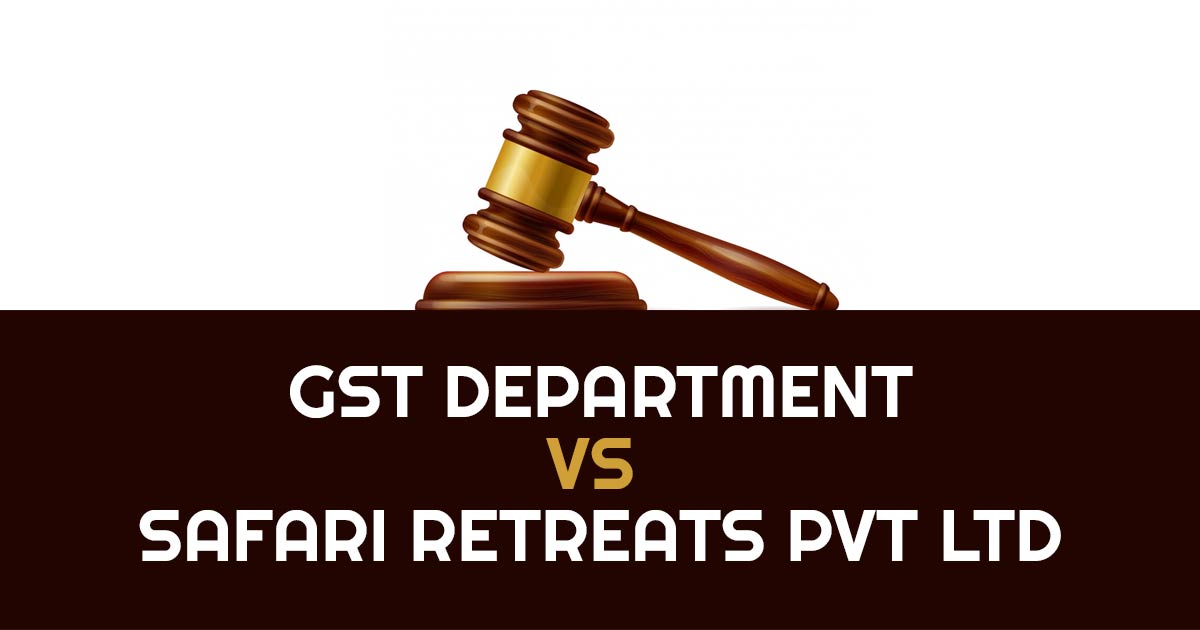
The Supreme Court of India has approved to hear to the issue under the GST, the ITC must be available to the firms for construction and renting out of the immovable property.
The case, Safari Retreats Pvt has come from the Orissa High Court in which the court supported the company’s argument. The GST department has now furnished a special leave application with respect to the high court ruling where it has now listed to the Supreme court dated 29th September.
Tax expert said that “Given that the denial of input credit disturbs the tranquillity of VAT system and is also opposed to the concept of fiscal neutrality, which lies at its very foundation, the issue does merit a real look even by the policy framers and the GST Council meet,”
The same case impacts all the entities engaged in the construction of an immovable property business and rent it out.
Safari Retreats has been involved in the construction of shopping malls for the purpose of renting them for commercial usage. The same would give taxes on the input goods and services used in the construction of immovable property, such as cement, sand, steel, aluminum, wires, consultancy services, legal services, architectural services, etc. the same has been claimed the credits on the same input goods and services which is used them with respect to GST subjected to be paid on rentals.
Read Also: Why Steel Industry Thinks It is Doing Samaj Seva after GST?
The claim of the credit has been refused by the GST department quoting section 17(5)(d) of the Central Goods & Services Tax Act, 2017. The same provision mentioned that the ITC would not be available for the goods or services utlised for the construction of immovable property, different from plant and machinery, for moving the business ahead.
The Orissa High court did not agree with the tax department’s view and read section 17(5)(d). The high court mentioned that the purpose of the GST is to prevent various taxes. Furnishing the GST on the inputs that have been consumed in the construction of the building and on the rentals made via the identical building without permitting the claim of the credit levied the load of double taxation.
The same mentioned that an Input tax credit could be claimed on the goods and services utlised for the construction of the immovable property and for moving the business ahead.
Orissa High court mentioned that “…if the assesses is required to pay GST on the rental income arising out of the investment on which he has paid GST, it is required to have the input credit on the GST”
In the case of VKC Footsteps India Pvt. in the former year, the Apex court mentioned that the ITC would be the legislative preference. It is the GST council and not the courts that find out the areas in which the credit must be permitted. Sees within the lens that it may be hard to uphold the Orissa High Court order, he said.
Recommended: Impact of GST on Real Estate Sector in India
“But conceptually, the high court order makes sense—cascading effect of taxes must be avoided.”
The tax expert mentioned that there are two types of supplies, the first is in which the builder constructs the building and sells it. The other one is in which the building would be provided on lease for commercial purposes, the tax chain is unbroken here, and unable to claim the ITC revokes the GST purpose.
To diminish the cascading effect of multistage levies and taxes, the ITC would have been statutorily put in place. The same is one of the major arguments of the firm to the Supreme court.
Leave a comment